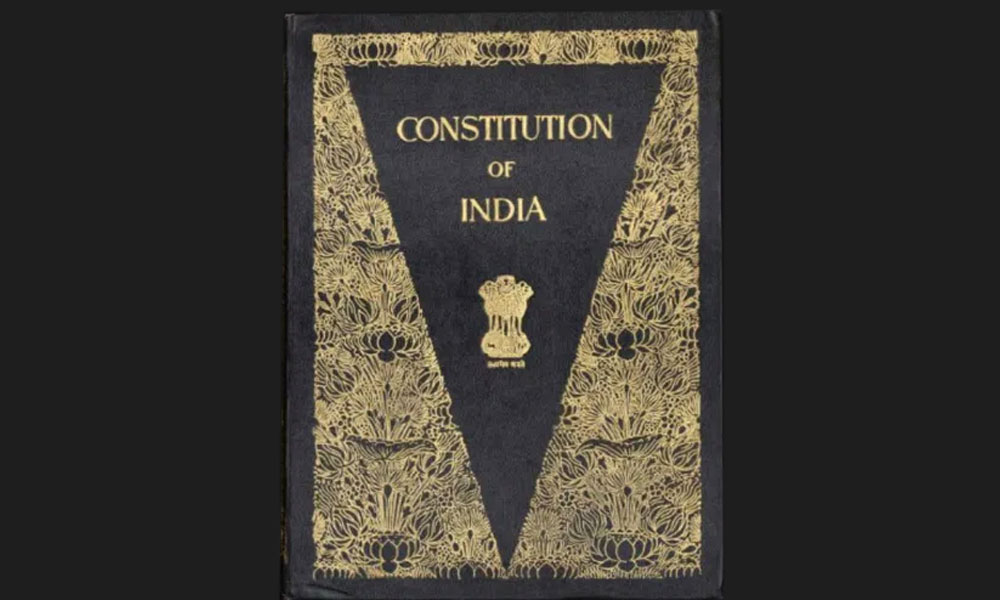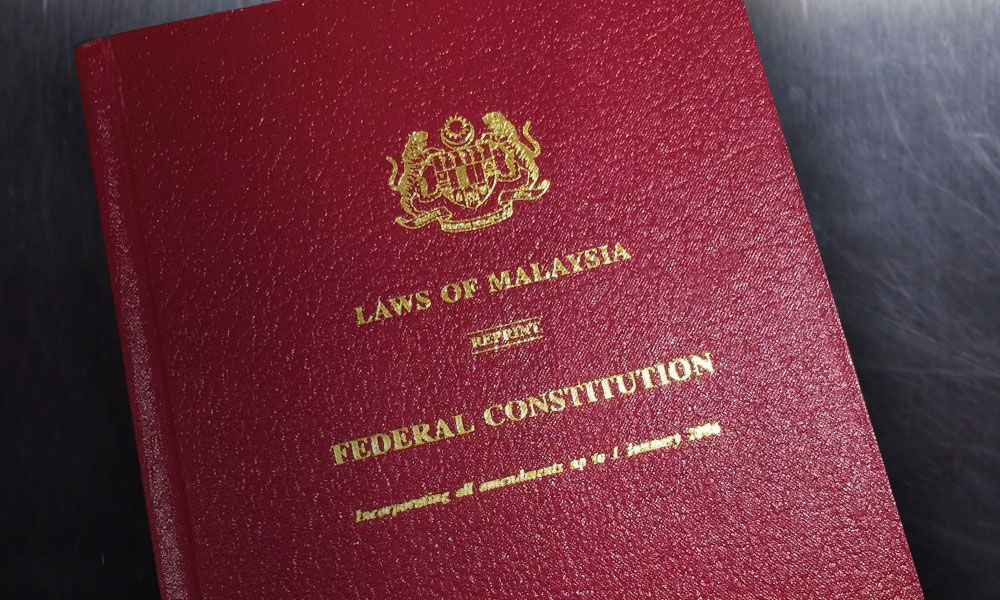There is a debate taking place as to the effect of Article 160B and a Malay translation of the Constitution. There is the risk of this discussion becoming one of pride and nationalism. My hope is that it does not.
We have every reason to be proud of our national language. But this discussion concerns the Constitution, the founding document of this nation.
It may be helpful to see how India has dealt with the situation. India has more than a billion people and its Constitution recognizes 22 regional languages. Most of its people do not understand English.
India became independent on Aug 15, 1947. The country undertook the task of drafting its own Constitution. BR Ambedkar was one of the great minds involved in the drafting process.
The Indian Constitution is reputed to be the longest Constitution in the world. In drafting it, India borrowed features from the constitutions of many countries including the United Kingdom, the United States of America, Ireland, Australia, Canada, France, Japan, Russia, Germany, and South Africa.
The Constitution was declared the supreme law of the country and all legislation passed by India’s Parliament and state legislatures had to be consistent with its provisions. The basic structure of the government as set up by the Constitution was immutable or unalterable. They included the democratic form of government, the doctrine of separation of powers, the independence, power, and authority of judges, the fundamental liberties or rights of its citizens, and its federal structure.

The Constitution of India, as adopted on Nov 26, 1949, was in the English language.
A Hindi translation of the same was published in 1950 by the authority of the President of the Constituent Assembly Rajendra Prasad. This Hindi translation, like its English counterpart, was signed by the members of the Constituent Assembly.
India’s Article 394-A
The 58th Constitutional Amendment Act 1987 added a new Article 394-A in Part XII of the Constitution which authorises the President of India to publish an authoritative text of the Constitution in the Hindi language with all the amendments being incorporated into it.
The Hindi translation of the Constitution shall be construed to have the same meaning as the original text in English. In case of any ambiguity or difference, the Hindi version should be revised accordingly.
The full text of the 58th Constitutional Amendment Act 1987 is given below”
“An Act further to amend the Constitution of India
Be it enacted by Parliament in the Thirty-eighth Year of the Republic of India as follows:
3. Insertion of new Article 394-A. After Article 394 of the Constitution, the following article shall be inserted, namely:
“394-A. Authoritative text in the Hindi language.
(1) The President shall cause to be published under his authority:
(a) the translation of this Constitution in the Hindi language, signed by the members of the Constituent Assembly, with such modifications as may be necessary to bring it in conformity with the language, style, and terminology adopted in the authoritative texts of Central Acts in the Hindi language, and incorporating therein all the amendments of this Constitution made before such publication; and
(b) the translation in the Hindi language of every amendment of this Constitution made in the English language.
(2) The translation of this Constitution and of every amendment thereof published under clause (1) shall be construed to have the same meaning as the original thereof and if any difficulty arises in so construing any part of such translation, the President shall cause the same to be revised suitably.
(3) The translation of this Constitution and of every amendment thereof published under this article shall be deemed to be, for all purposes, the authoritative text thereof in the Hindi language.”
The following points should be noted.
1. The original version of the Constitution is in English.
2. The Hindi translation results in a second authoritative version of the Constitution. It does not replace the original English version of the Constitution. So there are two authoritative versions of the Indian Constitution.
3. “The translation of the Constitution and all amendments thereto shall be construed as having the same meaning as the original thereof and if any difficulty arises in so construing any part of such translation, the President shall cause the same to be revised suitably“
In other words, the English version of the Constitution remains the reference text for the Hindi version of the Constitution. The draftsman brilliantly overcame the problem of having two authoritative versions of the Constitution.
What did we do in Malaysia?
This Article was not found in our original Constitution but was inserted by Act 1130 as an amendment with effect from Sept 28, 2001. It reads as follows.
“Article 160B. Where this Constitution has been translated into the national language, the Yang di-Pertuan Agong may prescribe such national language text to be authoritative, and thereafter if there is any conflict or discrepancy between such national language text and the English language text of this Constitution, the national language text shall prevail over the English language text.”

The amendment was passed without much debate or controversy. I can only surmise that our parliamentarians were unaware of the implications of such an amendment. The original English text of the Constitution remains but conflicts are to be resolved in favour of the Bahasa Malaysia text.
That amendment remained quietly in the books until the attorney-general in a recent speech at the opening of the legal calendar announced his intention of placing the Malay translation of the Constitution before the King.
The result was a firestorm. Although it must be said that parliamentarians have been relatively quiet.
This is not an issue of nationalism, patriotism, or pride in our national language. The English language version is the original founding document of our nation. Not only is it a historical document, it was built on traditions borrowed from England and other Commonwealth nations.
Its features, structure, scheme, principles, and values go back hundreds of years and are explored and authoritatively explained and settled in hundreds of cases and commentaries in England and elsewhere.
The lexical roots and traditions of phrases and words used are to be found in dictionaries and other source materials in the English language.
Like India and many Commonwealth countries, we have chosen to maintain our connection with the common law of England. That ensures the longevity, continuity, and stability of our legal system. It reinforces our commitment to the rule of law and to the maintenance of our democratic traditions and institutions.
India is a proud nation with its own traditions going back thousands of years. It is home to two classical languages - Sanskrit and Tamil. But has decided that the English language shall be the language of its laws and its courts.
Many laws are written in English and either Hindi or vernacular languages but in the case of disputes, the English language version will prevail.
India has more than a billion people most of whom do not understand English, hence the need for a Hindi version of the Constitution. But the amendment makes clear that the original English language version is the reference version. It maintains the connection with the traditions on which India’s constitutional democracy is built on.
It is possible that Malaysia’s Article 160B was formulated without much consideration of its implications. Perhaps it was simply a draftsman’s response to an executive instruction.
Therein lies the danger. There are forces within our midst who are unhappy with constitutional and legal constraints on their agendas for changes to our legal and political system.
As we have seen, some of our leaders do not like the idea of independent judges. They ask the question of why we should be bound to principles and traditions that are not our own. They are reluctant to face the truth about themselves.
We all come from feudal traditions where the will of the ruler was law. Our rulers willingly gave up sovereign power for democratic rule. We are grateful to them for that. We cannot allow politicians to step into the space they created.
The discussion is about the founding document of the nation. It is about our Constitution which is the supreme law of the nation. It is not about the English language per se. The Constitution in its original form was written in the English language. The Malay translation must stay true to the original. In the event of disputes as to the meaning and interpretation of words, phrases, and clauses of the Constitution, there must be deference to the original English version. - Mkini
READ MORE: Just a translation - or a new Constitution? Part 1
DAVID DASS is a lawyer, Malaysiakini subscriber, and commentator.
The views expressed here are those of the author/contributor and do not necessarily represent the views of MMKtT.




No comments:
Post a Comment
Note: Only a member of this blog may post a comment.